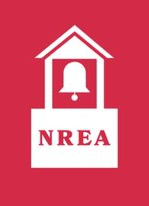| 2022 Newly Elected Executive Committee Members |
|
|
|
Dr. Melissa Sadorf Arizona Rural Schools President-Elect Designee |
|
Dr. Chris Lagoni Indiana Small and Rural Schools State Affiliate Rep. |
|
Dr. Jason Bell Tennessee Rural Education Association K-12 Rural Educator Rep. |
|
|
| You’re Invited: How DonorsChoose is Reducing Teacher Turnover |
| Knowing how many school leaders are focused on retaining excellent educators, I wanted to invite you to the upcoming webinar Reducing Teacher Turnover: How DonorsChoose is Helping to Keep Teachers in the Classroom. University of Michigan Ross School of Business professors Samantha Keppler, Andrew Wu, and Jun Li will share their groundbreaking study that shows how having a funded DonorsChoose project makes a teacher 22% more likely to stay in a given school year.
Register here to secure your spot. The conversation will be hosted on Zoom on Thursday, January 20, from 3-3:45 ET with an opportunity for live Q&A with the researchers. |
|
|
|
| Survey Request of Rural Education Support |
| You are invited to reply to a 15-minute survey about the extent to which you receive services and supports from your state education agency that is responsive to rural contexts. Results from this survey, jointly developed by NREA, ADI, and ICF, will help NREA and other advocates understand rural educators’ needs for assistance. Your replies will be kept private and anonymous, and your identity will never be associated with your answers. Your participation in this survey is entirely voluntary, and you may withdraw at any time without any penalty. In addition, your participation or non-participation will not be used to positively or negatively affect you or your participation in any NREA program. If you are unable to complete the survey in one sitting, you may leave it and re-enter to finish later. If you have any questions about this survey, please contact Caitlin Howley at caitlin.howley@icf.com. Thank you for your input!
|
|
|
|
| The nonprofit CFES Brilliant Pathways is hosting a virtual College and Career Readiness training |
|  |
The nonprofit CFES Brilliant Pathways is hosting a virtual College and Career Readiness training to help parents and guardians support their students. Would you share this information with your members to help students and families in rural areas increase their access to college and career training opportunities?
I have copied below (and attached) a message with links to the free registration and more information. The goal is to help at least 1,000 parents.
Thank you for any help encouraging participation. --- Attn: Parents/Guardians,
The pathway to college and the workplace has changed more in the last two years than in the previous 30!
Learn how these changes affect your child by participating in free virtual training led by professionals from CFES Brilliant Pathways.
The CCR (College & Career Readiness) Advisor training involves four 30-minute sessions: a live opening session on January 20 at 6 pm ET, two learning sessions you can log into at your convenience, and a live closing session a week later on January 27 at 6 pm ET.
These sessions will provide valuable information on paying for college, including how to help your child: - Access millions of dollars in scholarships and financial aid that goes unused each year,
- Find the right college and navigate the application process,
- Identify best-fitting majors and careers,
- Develop the Essential Skills (leadership, networking, goal setting, teamwork, agility, perseverance) that ensure success in college, the workplace, and beyond.
Participating parents and guardians can receive a certificate from the University of Vermont. Training is offered in both English and Spanish, you can register here. |
|
|
|
| NREA Signs Letter to Support School Facilities Extension |
|  |
Dear Chair DeLauro, Chairman Leahy, Ranking Member Granger, and Vice Chairman Shelby:
On behalf of a broad and diverse coalition of education, health, environmental, labor, and industry organizations, we urge you to include a change to the American Rescue Plan that would extend the timeline school districts have to expend funding for school construction and capital projects until December 2026 in the fiscal year (FY) 2022 Labor‐HHS‐Education appropriations bill.
Congress has played an unprecedented role in supporting school districts throughout this pandemic, and it is in every American taxpayer’s interest to ensure that federal funding can be spent in the most effective way possible. Because ARP is one-time funding, updating school facilities to ensure healthier and safer environments and the best possible utilization of classroom space is among the wisest and most consequential investment decisions districts can make. However, if the timeline for ARP funding is not extended, then critical school facility upgrades and major capital improvements may not be a possibility for many districts across the country.
Generally, districts are spending ARP funds to stem learning loss, provide additional mental health services, expand learning time, provide professional development, and on other critical K-12 initiatives. However, many districts also have significant and sorely needed school facilities and renovation needs to ensure the health and safety of students, staff, and parents, improvements such as heating ventilation, and air conditioning (HVAC) replacement, roofing, window, and door replacements, and retrofitting classrooms and buildings.
Districts were hoping to receive standalone funding for these improvements in school facilities through either the Build Back Better Act or the Infrastructure Investment and Jobs Act. Regrettably, that funding has not come to fruition, and many districts are now eager to find ways to utilize the American Rescue Plan funds to address these critical needs.
Unfortunately, the ability to utilize unspent ARP funds for these facility upgrades is severely limited because the deadline to obligate ARP funds is September 2024. That current deadline will be nearly impossible for most districts because of limited contractor availability and supply chain disruptions that are substantial and expected to get worse in 2022.
Action to extend the ARP timeline is critical as districts continue to finalize spending plans, which is why the forthcoming FY22 appropriations package must extend through December 2026 the timeline for districts to complete capital construction and improvements using ARP funds. This deadline aligns with the ARP spending deadline for facilities that pertain to local governments.
More flexibility to spend money on school construction has no budgetary impact on the federal government, but it does enable districts to invest ARP funding in a way that will benefit children and their communities for years into the future. School buildings are not just used to educate K-12 students; they are voting sites, clinics, and serve many other community purposes. Improved school facilities will not only assist in improving learning and teaching conditions for students and educators but also allow our schools to continue to be the hub of community life.
We urge you to consider this budgetary request that will further the success of federal investments in K-12 schools. |
|
|
|
| U.S. Department of Education’s School Ambassador Fellowship |
|
|
|
There is still time to apply for the 2022-2023 cohort of the , U.S. Department of Education’s School Ambassador Fellowship but the application portal closes soon. We will continue accepting application submissions until 11:59 PM Friday, January 14, 2022! The School Ambassador Fellowship is designed to improve educational outcomes for students by leveraging the expertise of school-based practitioners in the creation, dissemination, and evaluation of national education policy. Ideal candidates for this program are educators from the public, charter, independent, magnet, parochial schools, etc. who have made significant contributions to student learning and culture, can effectively communicate to a variety of internal and external education stakeholders, and can promote excellence in education through their collaboration and leadership capabilities. We are excited to engage great educators from your networks as we partner together to improve educational outcomes for all of our nation’s children. Thanks for your support! |
|
| Rural Educator Weekly Spotlight: |
|
|
|
| Growing Your Own Educational Leaders: Implications for Rural School Districts and Institutions of Higher Education |
| The purpose of this article is to examine a ‘grow your own’ model of leadership preparation and placement of educational administrators in the state of Tennessee. The growing need for school and district administrators in the rural counties of Tennessee mirrors a nationwide issue, and state policymakers and practitioners must respond appropriately to sustain adequate K-12 educational leadership that is representative of state demographics. Recommendations for policy and practice are provided for state and local education agencies as well as principal preparation programs in higher education.
Austin Peay State University Benita Bruster Cheryl Lambert James Thompson John McConnell |
|
|
|
Three Major Updates from USED During the Break We are flagging three major items, and will have further detail in the coming week (including technical assistance/webinar opportunities): USDA Distributes $1.5 Billion To Strengthen School Meal Programs Amidst Supply Chain Disruptions On December 17, the U.S. Department of Agriculture (USDA) announced that it is providing up to $1.5 billion to states and school districts to help school meal operators deal with the challenges of supply chain disruptions caused by the pandemic. The funding will be made available through USDA’s Commodity Credit Corporation and funneled through the states for different purposes. Read more on the blog.
USED Announces Joint Temporary Action With U.S. Department Of Transportation To Help Address School Bus Driver Labor Shortage On Tuesday, January 4, the U.S. Department of Transportation announced a collaborative effort with the U.S. Department of Education to address the school bus driver shortage. The Federal Motor Carrier Safety Administration (FMCSA), an agency within US DOT responsible for regulating the trucking industry, is giving states the option of waiving the portion of the commercial driver’s license (CDL) skills test that requires applicants to identify the “under the hood” engine components. USED and US DOT hope this will alleviate some of the labor shortage challenges schools are facing to safely keep schools open for full-time, in-person learning. Read more on the blog.
Webinar: How School Leaders Can Help Connect Families to the Expanded Child Tax Credit Join the Partnership for America's Children and the Coalition on Human Needs to learn about best practices and resources for helping your districts help families claim this critical benefit. We will also be joined by a school leader about their district's experience conducting CTC outreach to families. The webinar will be held Thursday, January 20, 1 - 2 p.m. ET. Register today. |
|
|